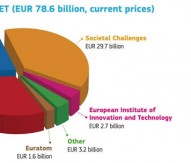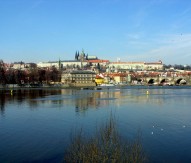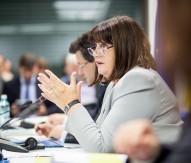
Is Horizon 2020 really simpler than FP7?
The European Commission has made significant steps in simplifying the administrative processes of Horizon 2020, introducing ‘a single set of rules’ for all participants and streamlining the funding system. However, to what extent do the actions taken by the EU institution adequately address the concerns made by FP7 participants?
Undertaking a detailed assessment of Horizon 2020, Dr Michael Galsworthy of University College London and Professor Martin McKee of the London School of Hygiene and Tropical Medicine assessed the changes made to the next framework programme; Dr Galsworthy spoke to Horizon2020projects.com about their results.
How would you describe the changes made to Horizon 2020 by the Commission?
The Commission has brought all of their research and innovation funding into one large, single programme, branding it as a ‘one-stop shop’. Some people complain that it looks like the funding mechanism and the actual instruments under the Horizon 2020 umbrella will remain pretty complex – you have a whole variety of different acronyms associated with different programme types and there are concerns that there will be some mission overlap. However, it’s very difficult to develop a ‘one-size fits all’ funding stream.
There are also simplifications when applying and engaging in a project. Under FP7, the administration costs with simply applying for a grant and then running a project were extremely high – it was tremendously burdensome and full of red tape with lots of waiting. It seems steps have been taken to cut down on that and this was largely driven by the recognition by the Commission that no small research institute or SME has the in-house admin capacity to deal with the bureaucracy. The Commission has promised that these admin costs are going to be slashed by 15-20% and that submissions will be faster.
I also welcome the removal of time sheets. Previously, everyone involved full-time on a project had to complete one, yet there was no need for this. The Commission now seems to have realised that this is pointless bureaucracy.
However, one aspect I think the Commission has overlooked is the project tendering system. If you start a project without an explicit partner company, but rather decide to subcontract web development or database servicing at a later stage, approval for this contract must be sought through a tendering process that will cost significant amounts of money, time and hassle. An official call must be put out stipulating all the details for what you want to achieve and the project co-ordinator must then assess all the companies that are interested. Bids are submitted by post and offers are often made and usually have to be accepted based on money rather than a competency or engagement criteria. I think that’s a shame for a project which ideally would like just to approach companies informally and make their own decisions quickly and easily. It’s also massively burdensome for SMEs that must put together long proposal documents and then have to wait before making a final decision. More trust should be placed in researchers – if the EU wants to have research institutes and SMEs really engaged in Horizon 2020, then removing this barrier will allow greater flexibility and high-paced interaction that is good for universities and start-up businesses.
A useful part of the simplification process is to consider the declared outputs of a project rather than checks on processes – the EU is often more focused on ticking process boxes rather than the eventual outputs. For those projects that gather data, I would like to see the Commission demanding databases as a deliverable at the end of each project. I would like to see the development of an open data repository in Europe with researchers sharing their raw data alongside their published results. However, I hope the EU does not go down the route of adding layers of bureaucracy by enforcing up-front ‘data-management plans’– if a database is potentially usable by other people, it should simply be checked and archived at the end of the project. We can then guarantee that there is the usable output – it is unrealistic to say that academic papers should be available at the end of a project because they take longer to produce.
To what extent does Horizon 2020 result in the mismatch in research identified in many of the previous research framework programmes?
Horizon 2020 is very much focused on hiring scientists to address the grand societal challenges and I think the balance made by the Commission is generally right. Conceptually, Horizon 2020 is looking better in harnessing European science to drive innovation and growth, turning high quality research into products and patents and getting research feeding into the economy. The US and Japan have often had more success than Europe on that front. However, there have been concerns expressed by universities who don’t want to see too much emphasis on ‘top-down’ research, so the door needs to be kept open for new innovative ideas that have emerged ‘bottom-up’ from academic communities. You need a clear vision to meet these grand challenges, but there still needs to be breathing space for unexpected new ideas.
European science could do with a bit of branding and these domains of health, society and sustainability are areas in which we want to excel and want the world to know that this is where we lead – I think that’s a smart choice and a good move.
Dr Michael Galsworthy




